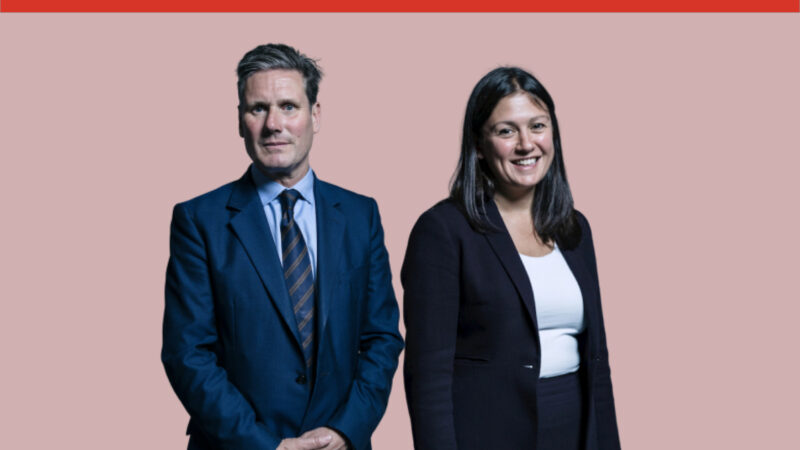
Labour’s parliamentary party in Westminster was treated to a hustings last night, where leadership candidates set out their pitches to those MPs who currently have nomination powers. Official figures have not yet been released, but we know that Keir Starmer is way ahead in terms of MP/MEP nomination numbers for the leadership race while deputy leadership candidate Angela Rayner is sailing through this round with plenty lining up to publicly announce their support. It looks so far as if Emily Thornberry will be knocked out of the contest at this stage, and Clive Lewis would need the dynamics to change if he were to move forward. Rebecca Long-Bailey and Jess Phillips won’t have much trouble here. So far, so predictable.
Starmer’s popularity among MPs and MEPs means he is likely to secure the highest number of nominations, and far more than the 22 required by the rules, which makes it more difficult for outsiders to get a look-in. It also means he can start planning ahead for the next stage of the process, when candidates can either get through with 33 local party nominations or with 5% of affiliated members. The latter option is trickier than the former: for that route, candidates need the backing of two trade unions.
With the understandable desire to back a winner, most unions will get behind one of the two frontrunners – Starmer or Rebecca Long-Bailey. To firm up that support, Starmer has cleverly written a piece for LabourList that pitches to unions. It leans left, naming five big players – UNISON, Unite, GMB, CWU, Usdaw – and endorsing their campaigns, with an explicit mentions of CWU’s broadband policy (though he describes the offer as “affordable” rather than “free”). The Holborn MP says “some of our strongest and most dynamic campaigns and policies came from our trade unions” in the 2019 election, which is notable because they were the most radical in the manifesto, from public ownership to a four-day week.
Sources say performances at the PLP hustings were above expectations, but the consensus – certainly among swing voters – was that Lisa Nandy impressed most. She talked about decentralisation (“many in Rhyll feel just as distant from Cardiff as they do from Westminster”), celebrated local government (“what Preston Council is doing rebuild the economy, how Plymouth is providing clean energy, how Luton is building homes”) and criticised the election strategy (“never again can we let factions and friends of the leader dictate where resources go”). These are all remarks that prove popular with Labour MPs, which is very good news for her nominations.
But it was interesting to see how the responses to my reports of Nandy’s soundbites – particularly “how dare we tell working-class people what’s good for them” – showed opinion was deeply divided among members. Many replied something along the lines of, ‘isn’t that the point of the Labour Party?’. Labour Twitter isn’t reflective of the wider party, but this does tap into a weakness. There has been criticism of her approach from those who worry that “listening to working-class voters” could mean taking on board socially conservative views without questioning their origins or implications. Nandy has shown in the past that this is not what she means, with a robust defence of LGBT rights for example, but appealing to members will require further work from her campaign on that front.
Labour’s deputy leadership race is fairly quiet at the moment, and you may not have heard much about it. The contest became a little more interesting yesterday when John McDonnell backed Richard Burgon over the other shadow cabinet members running. Do check out our piece on the six candidates. And you might also want to watch the most remarkable interview clip of either contest so far, which shows Rosena Allin-Khan setting out plans for a “Ministry of Fabulosity”. Yes, you read that right. She also sings.
Sign up to LabourList’s morning email for everything Labour, every weekday morning.



More from LabourList
‘The hope that kills you’: Reflections from the final day in Gorton and Denton
MPs, union leaders and organisations react to ‘bruising’ Gorton and Denton result
A gory night for Labour